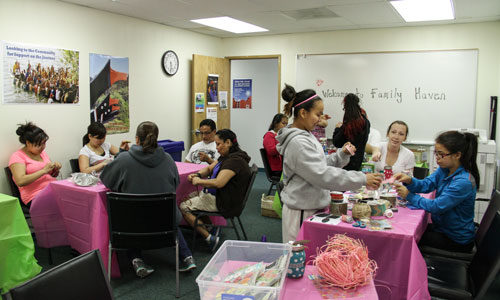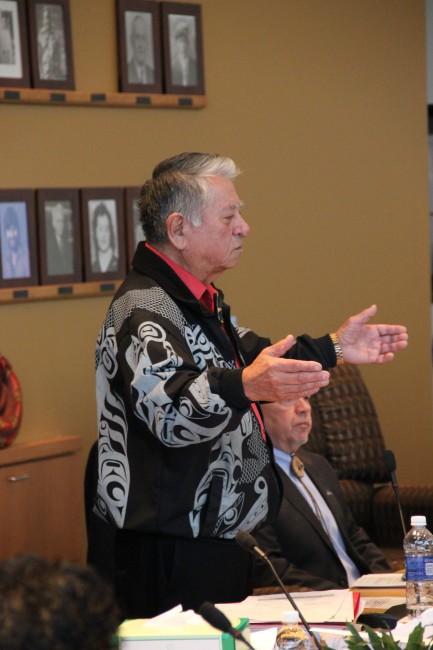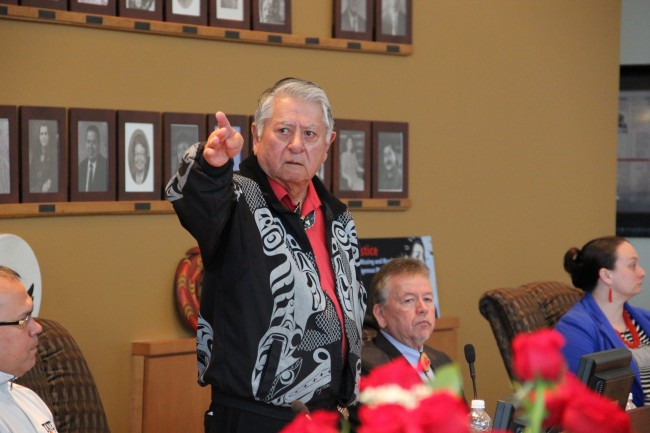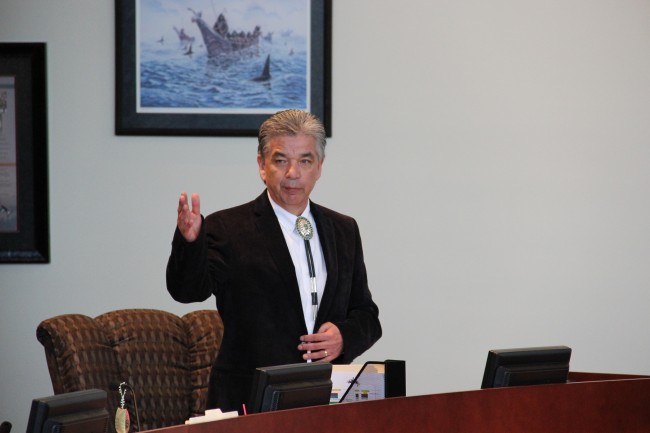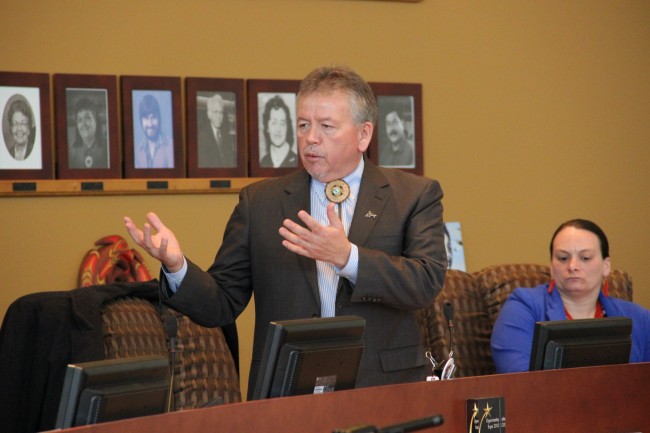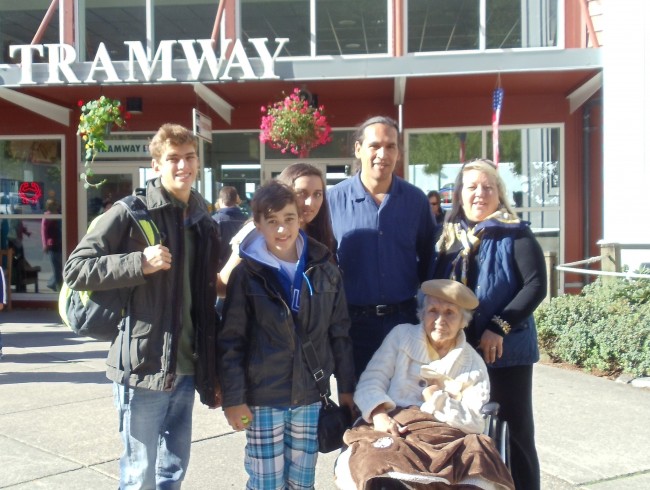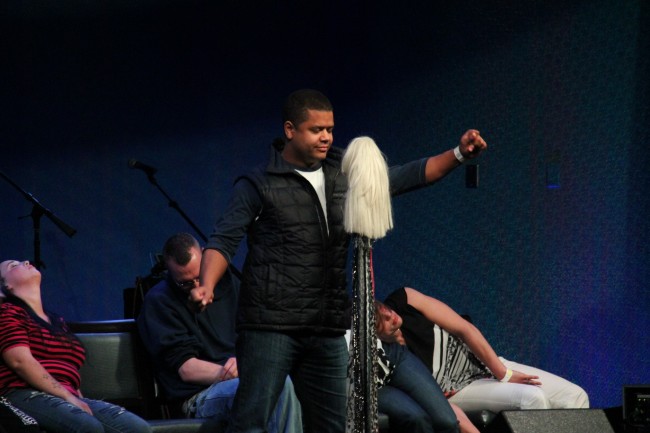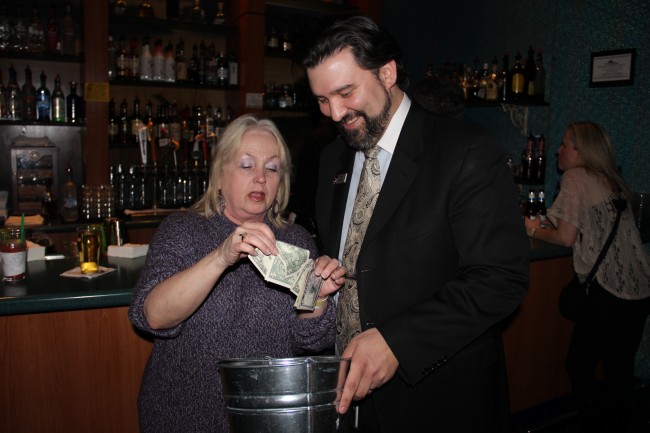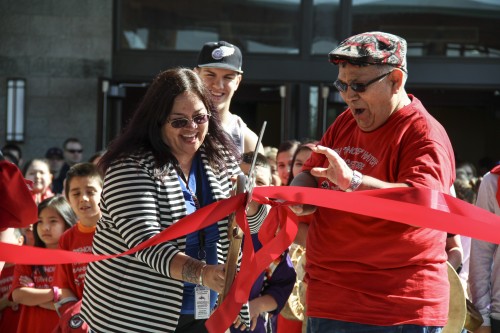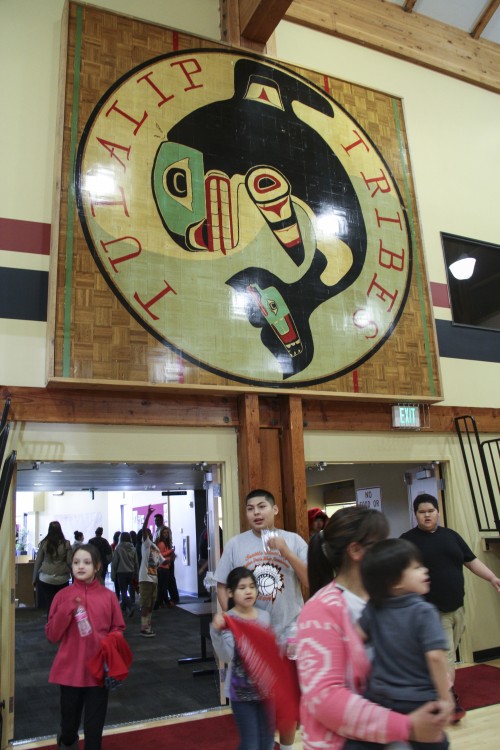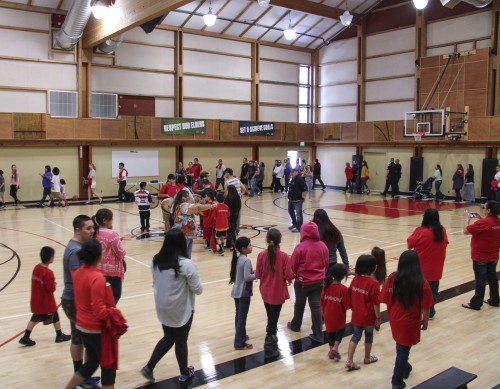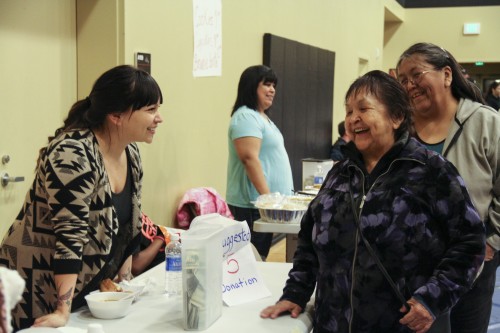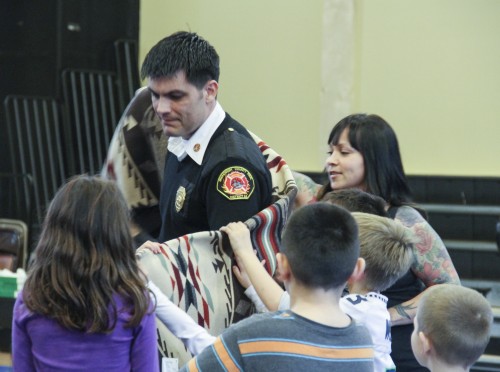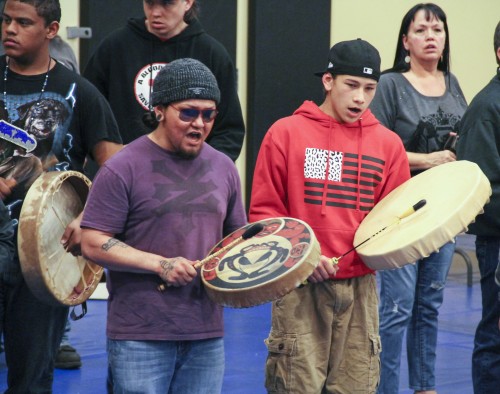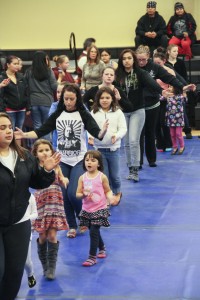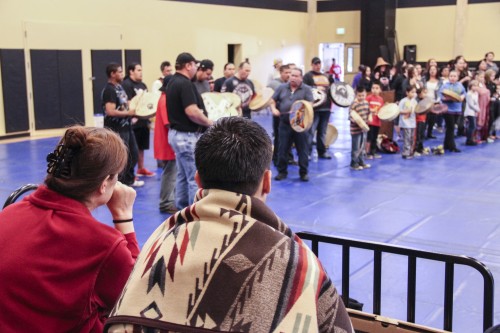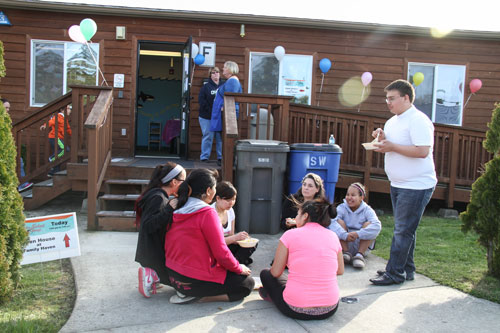
Photo/ Brandi N. Montreuil, Tulalip News
Just for the girls
by Brandi N. Montreuil, Tulalip News
TULALIP, WA. – Being young is one of the most thrilling times in a person’s life. It is the time frame between major responsibilities and no responsibilities at all, however, the decisions made during this phase can be hazardous to their future. Some decisions can destroy your life while others will define what type of an adult you will be. To help teen Native girls navigate this precarious time, a new group designed just for them through Tulalip Family Haven is providing Native girls the support they need to become the most successful person they can be.
The group, simply referred to as Girls Group, will offer Native girls, 14-17 years old, support in life skills, education, and cultural understanding. The group uses the Canoe Journey, Life’s Journey curriculum guide by June LeMarr and G. Alan Marlatt, which is a comprehensive evidence-based intervention curriculum guide for Native adolescents. The girls will be taught to make choices that promote positive actions while learning to avoid the hazards of alcohol, tobacco, and other drugs.
“This is about intervention, prevention and education to keep girls away from hazardous lifestyles, while increasing their self-esteem and empowering their self-awareness to ensure they become successful adults,” said Yvette McGimpsey the group’s project director.
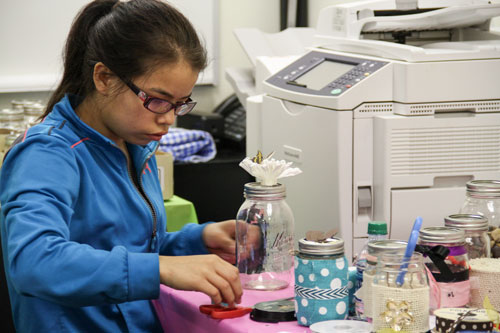
Photo/ Brandi N. Montreuil, Tulalip News
“The idea is to teach young Native women life skills, everything from how to cook and clean to budgeting finances, along with cultural awareness,” explained Sasha Smith the group’s lead youth advocate. “As we do our curriculum, we will be incorporating activities such as crafts and guest speakers from the community and from our elders. We will also be doing other education pieces such as sexual education, and dangers of alcohol and drug use.”
Curriculum will also include nutrition education through the Washington State University Nutrition Program, which uses an interactive approach through trained staff, to teach participants to develop skills and behavioral healthy eating. Community work, such as cleaning up beaches and visiting elders will also be included.
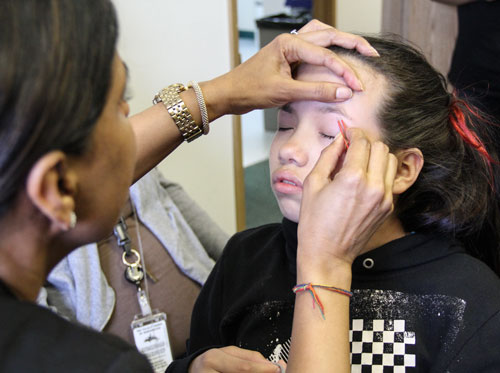
Photo/ Brandi N. Montreuil, Tulalip News
“A simple day in the group would be, we pick them up from school, they will have time devoted to doing homework, then we do an activity such as art and craft making. Then we will all make dinner together and work on a lesson from the curriculum guide,” said McGimpsey.
“And that is the biggest thing, these girls may not have a healthy place to go after school or have homework help or have someone teaching them those critical life skills. This will be a safe place for them,” said Smith. “We will also be exposing them to things they would never get a chance to experience, such as the ballet or an art gallery,” continued Smith.
The group meets every Tuesday, Wednesday and Thursdays and is free to join, and participants can be enrolled in the group until they graduate. A community advisory board, made up of youth advocate volunteers and professionals, will also evaluate the group’s progress monthly for effectiveness.
For more information on the Family Haven Girls Group or how to sign up, please contact lead youth advocate Sasha Smith at 360-716-4404.
Brandi N. Montreuil: 360-913-5402; bmontreuil@tulaliptribes-nsn.gov
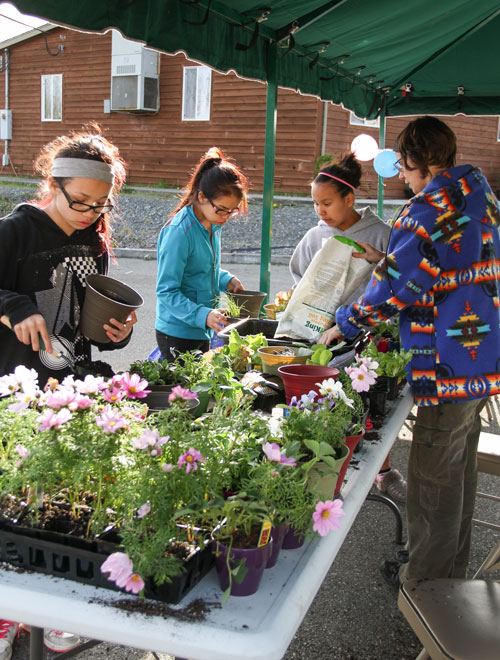
Photo/ Brandi N. Montreuil, Tulalip News

